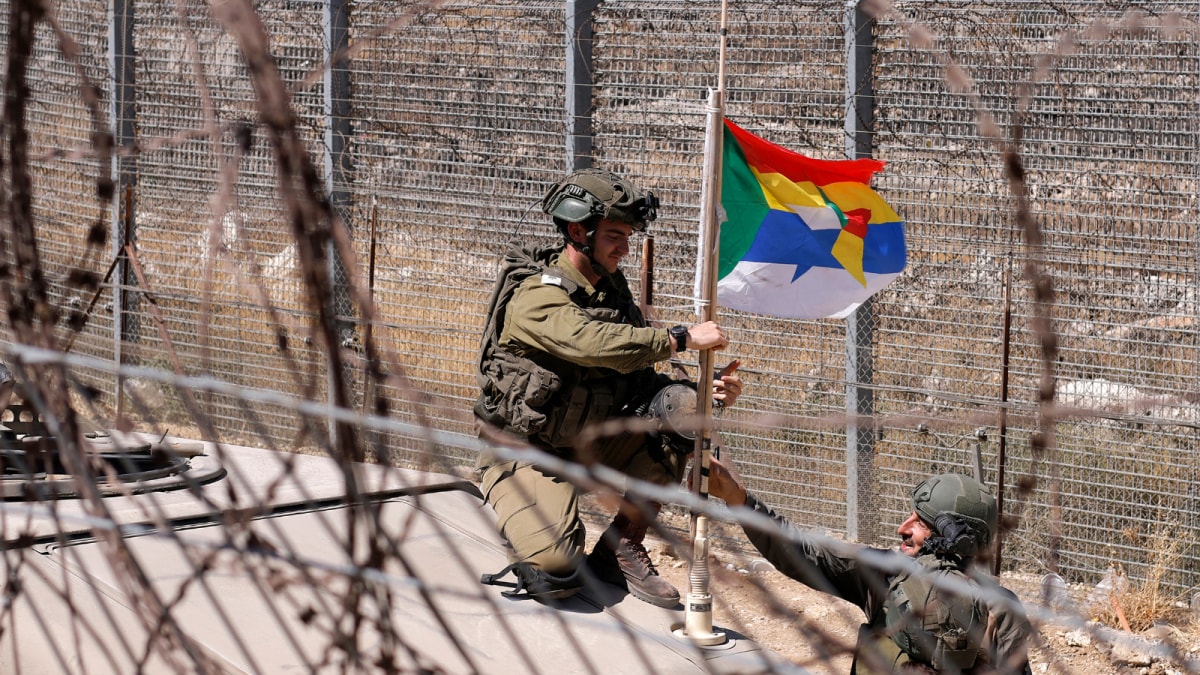According to the Syrian Observatory for Human Rights (SOHR), over 350 people have died since July 13.
What started as a local dispute has since ballooned into a regional flashpoint—bringing the Druze community, long known for its quiet resilience, to the centre of Syria’s post-war turmoil.
But what raised international eyebrows was Israel’s sudden intervention, launching airstrikes on Syrian military targets in Suwayda and even Damascus.
Israeli Prime Minister Benjamin Netanyahu said the attacks were meant to protect the Druze.
But the question many are asking now is—why is Israel getting involved? Is this about protecting a vulnerable minority, or are there deeper strategic motives?
Who Are the Druze?
The Druze are a small but tightly-knit ethno-religious community, tracing their origins to 11th-century Egypt. Their faith began as a branch of Ismaili Islam, but it later evolved into a distinct religion that blends elements of monotheism, mysticism, and philosophy.
Known for keeping their beliefs private, the Druze don’t allow conversions either from or to the religion. Intermarriage is also prohibited in the religion.
There are about 1.5 million Druze globally, with significant populations in Syria, Lebanon, Israel, and Jordan. In Syria alone, there are around 700,000 Druze, making up 3–4% of the population.
During Syria’s civil war, they largely stayed out of national politics, focusing instead on defending their own towns with local militias. That focus on community and survival has made them a respected, if sometimes isolated, force in Syria’s fractured landscape.
Where Do The Druze Live In Syria?
The majority of Syrian Druze live in Suwayda province, a mountainous region in the south that borders Jordan and sits less than 50 miles from Israel’s Golan Heights.
Other smaller Druze communities are located near Damascus in areas like Jaramana and Ashrafiyat Sahnaya.
Suwayda has long been a semi-autonomous region. Even during the height of the Syrian civil war, Druze militias kept ISIS and other armed groups out, and the province remained relatively peaceful.
But this independence has often clashed with the Syrian government’s efforts to reassert control, especially now that Assad is no longer in power.
Why Are They Protesting Now?
The roots of the current unrest go back to August 2023, when Druze communities began protesting economic hardship and political repression. When Bashar al-Assad was ousted in December 2024, many hoped things would improve—but for the Druze, things only got worse.
The latest round of violence began on July 13, 2025, after a Druze merchant was kidnapped by local Bedouin tribes. What followed was a wave of revenge attacks and government crackdowns.
Syrian troops intervened but were accused of breaking ceasefires and targeting civilians, with SOHR reporting that at least 19 Druze were executed without trial.
For many Druze, the fight is now about protecting their autonomy and pushing back against a new government they see as dominated by Sunni interests. Reports of looting and vandalism by Syrian troops have only deepened the anger.
Why Is Israel Getting Involved?
Israel has its own Druze population of about 150,000 people, most of whom live in the Golan Heights and northern Israel. Unlike other Arab communities in Israel, the Druze serve in the Israeli military, which means their voices can not be ignored.
While the majority of Druze in Israel identify as Israeli, many of those living in the occupied Golan Heights consider themselves Syrian. With deep familial and cultural ties across the border, some Israeli Druze crossed into Syria in July 2025 to support their community amid the unrest, prompting Netanyahu to call for restraint.
Israel’s support for the Druze in Syria isn’t just about humanitarian aid, it is also a matter of strategy. Since Assad’s fall in late 2024, Israel has ramped up airstrikes on Syrian military positions, particularly those close to the Golan Heights.
Netanyahu has defended these strikes as efforts to protect the Druze, a group that has traditionally shown loyalty to Israel within its own borders.
But analysts believe there’s more at play. Israel is reportedly considering the creation of a “buffer zone” in southern Syria—essentially a Druze-controlled area that would keep Syrian troops and Islamist forces away from the border.
While many Druze leaders in Israel support their government’s outreach, there’s growing concern that this support could increase tensions within Syria, isolating the Druze from other communities.
According to commentators like Alon Pinkas (former Israeli diplomat), Israel’s goal is to prevent the rise of any strong, Islamist-aligned regime near its territory and maintain Syria in a weakened, fragmented state.
“As far as the Netanyahu government sees it, a divided, weak and failed state of Syria is a better option (for Israel) than a united Syria,” Pinkas told Al Jazeera.
